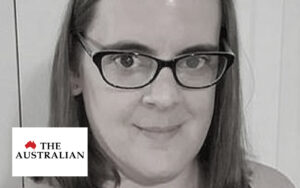More than one in five Australians – 21.4% of the population – now have a disability, according to new government statistics which also showed a 41.8% increase in autism over just four years.
In 2022 5.5 million Australians were disabled, up from 4.4 million (17.7% of the population) in 2018, according to data released earlier this month by the Australian Bureau of Statistics (ABS). 7.9% had either a profound or severe disability.
In the Survey of Disability, Ageing and Carers, a person is considered to have disability if they have any limitation, restriction or impairment which restricts everyday activities and has lasted, or is likely to last, for six months or more.
According to the ABS, several factors may have contributed to the increase, including a growing awareness of disability, a general increase in prevalence of some long-term health conditions, an online self-complete questionnaire being used in 2022, and an aging population.
Linda Fardell, ABS head of health statistics, said: “The increase was seen across most age groups in the most recent Survey of Disability, Ageing and Carers. As seen in previous surveys, people aged 65 years and older were more likely to have disability, with over half of this age group having disability in 2022.
“Of the people who are 15 years or older with disability and living in households, 45% have completed year 12 or an equal level of education. That’s 2.2 million people in 2022 – up from 1.3 million people, or 33 per cent, in 2018.”
A physical condition was the main long-term health condition for 75.3% of the disabled, down from 77.4% in 2018, the most common being diseases of the musculoskeletal system and connective tissue such as arthritis and back problems.
The remaining 24.7% suffered from a mental or behavioural disorder.
“The most common mental and behavioural disorders were psychological development, behavioural, cognitive and emotional conditions (9.4%), such as Autism spectrum disorders and Attention Deficit Hyperactivity Disorder (ADHD), an increase from 6.9% in 2018,” the ABS said.
Next were “anxiety disorders (7.4%), such as generalised anxiety, phobias, panic attacks, obsessive compulsive disorders, and post-traumatic stress disorder, an increase from 6.1% in 2018”.
In 2022 there were 290,000 Australians with autism (1.1%), a 41.8% increase from the 205,200 (0.8%) with the condition in 2018. 91.4% of people with autism were disabled, up from 88% in 2018, and 73% reported a profound or severe disability.
The figures come as the National Disability Insurance Scheme continues to grow beyond government forecasts, and is set to cost taxpayers more than the aged pension within three years if current trends continue and Middle Eastern criminals are not stopped from committing large-scale fraud.
If the current NDIS growth trajectory of 20% per year is maintained the scheme will cost $100 billion by 2027, making it the largest area of government spending.
The NDIS already costs $42 billion a year, more than the aged care system on $36 billion, Medicare on $32 billion, and hospital federal funding on $30 billion.
About 2.6 million Australians are on the aged pension, and the NDIS has 650,000 participants.
The rapid growth in the NDIS has been attributed to a surge in child enrolments for autism and “developmental delay”, as well as widespread fraud, with 12% of boys and 6% of girls aged between 5 and 7 now participating.
Earlier this month NDIS integrity chief John Dardo told a Senate committee that there were “significant indicators of fraud” portrayed by 90% of plan managers that handled funding for up to 100 participants.
In May Acting Commissioner of the NDIS Quality and Safeguards Michael Phelan warned that Middle Eastern gangs and other criminal groups were stealing more money from the NDIS than previously suspected, costing the taxpayer at least $8.8 billion this year alone.
Investment bank Jardens revealed in April that the about 30% of jobs created in the year to February were in areas servicing the NDIS, a situation described by 2GB host Michael McClaren as a “wealth transfer from the taxpayer to people working in [NDIS related fields]”.

























